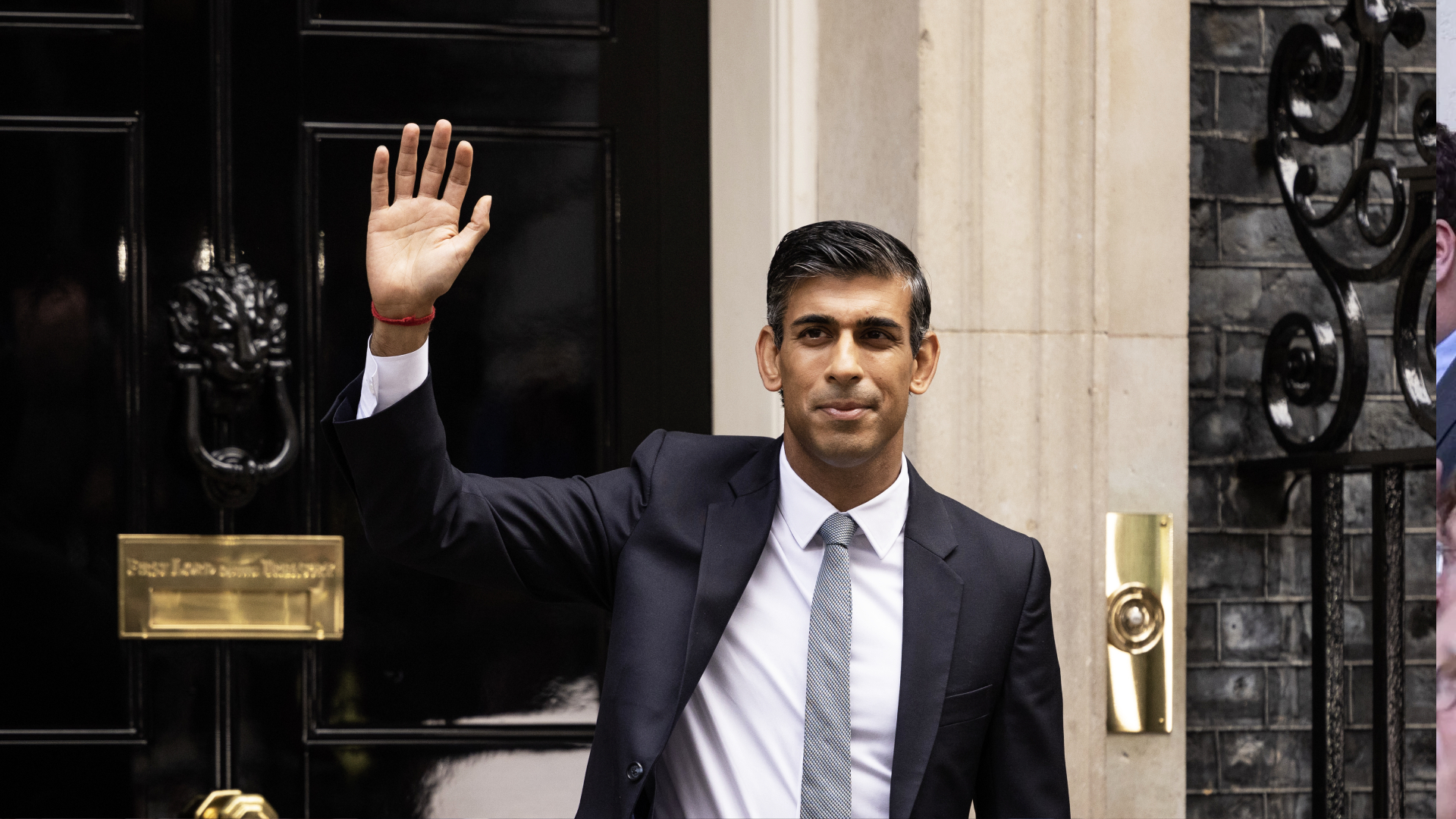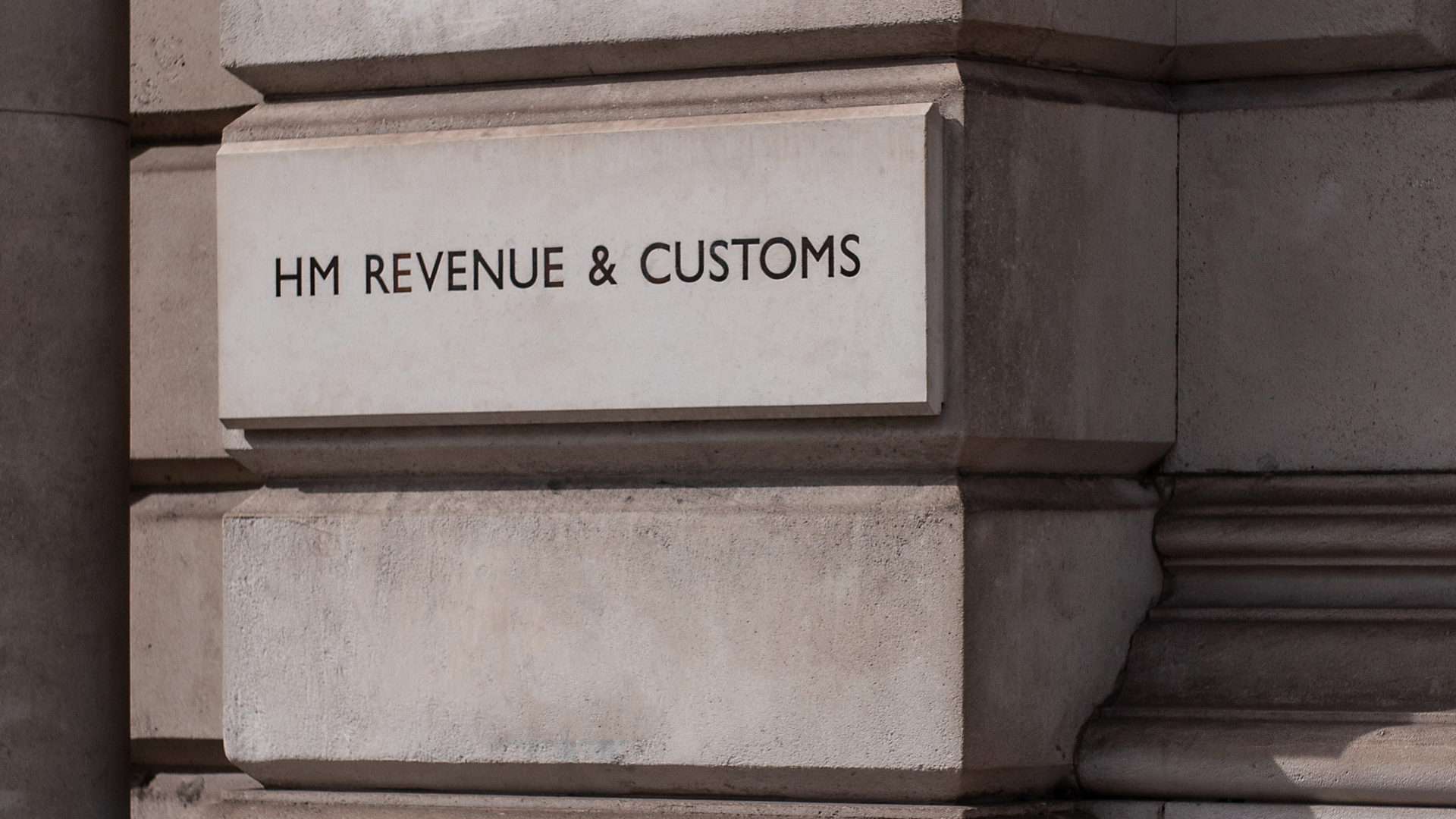Can Rishi Sunak turn around Britain's crumbling economy?
Experts give their thoughts.

Three Prime Ministers, economic turmoil and a lettuce that became a viral sensation after outlasting the PM - it’s safe to say that in the last few months British politics has descended into chaos.
Shortly after Liz Truss announced her resignation as UK Prime Minister a mere six weeks after taking on the role, Rishi Sunak was appointed our new PM, not long after losing out on the Tory leadership race to Liz Truss (head spinning? Us too). But it’s a position that comes with grave responsibility.
With Britain facing a cost-of-living crisis that's resulted in soaring energy bills, wages falling at the sharpest rate on record and inflation at a 40-year high of 10.1%, it’s a long road back to economic stability. Can Rishi Sunak and his “calm competence” (at least, according to his supporters) be the lifeline we need?
After Liz Truss’ disastrous stint in office, Sunak steps into the role when we really need a hero, and some are welcoming his seemingly no-nonsense approach, with financial experts naming Rishi “a safe pair of hands”. But for others, Sunak’s own net worth and extreme wealth (estimated at £730million) have posed a question mark over whether he’ll ever truly be able to relate to - or champion - those living in austerity.
"A crucial factor in the coming days and weeks will be Mr Sunak's tone. Does he get the scale of the cost-of-living crisis?” asks Kevin Pratt, a personal finance expert at Forbes Advisor. “Can he - a millionaire many times over - convince people in dire financial straits that he understands what they are going through, and is willing to fight their corner, even if it means confronting the money men in the City?”
Rishi Sunak’s speech yesterday - his first as Prime Minister - outlined his focus, telling the crowd earnestly, “I want to fix our economy”. It would seem that Sunak’s ready to take on the challenge of healing a broken Britain, even with the sounds of the Kaiser Chiefs belting out I Predict A Riot in the background…
Someone playing “I predict a riot” on loud speaker as Rishi Sunak makes his big speech 😂 pic.twitter.com/E0gphkxxmBOctober 25, 2022
What has Rishi Sunack said about the economy and cost-of-living crisis?
Sunak was very vocal about his disapproval of former PM Liz Truss’ tax plans during the Tory leadership race back in July, rightly predicting they would harm the economy. It looks like Sunak will take a straight-talking approach, stating back in July that he’s willing to tell hard truths about public finances rather than “comforting fairy tales”.
In his first speech as PM yesterday, Sunak admitted the UK is “facing a profound economic crisis”, promising “I will place economic stability and confidence at the heart of this government’s agenda,” but admitting, “this will mean difficult decisions to come”.
Marie Claire Newsletter
Celebrity news, beauty, fashion advice, and fascinating features, delivered straight to your inbox!
Lee Murphy, managing director of The Accountancy Partnership argues Sunak’s previous performance as Chancellor has given him some credibility, saying, “Rishi Sunak gained profile during the pandemic as the person who led the financial support for struggling businesses and employees. Given his previous high-profile role, he may be seen as a safe pair of hands.”
But while this approach may earn Sunak some trust with the public, Britain's immediate financial future is going to be extremely difficult to navigate."The new Prime Minister has a difficult balancing act ahead of him: keeping a tight rein on government borrowing, but finding the funds to support millions of households through a severe and worsening cost-of-living crisis,” Kevin Howard explains.
“The task will be made even more challenging because a lot of the problems are beyond his control – the war in Ukraine, economic slowdown in China, global supply-chain constraints, and high inflation across all leading economies.”
Financial expert Holly Mackay, founder and CEO of Boring Money, agrees, explaining, “It’s a hugely difficult tightrope to balance and Mr Sunak has the impossible job of keeping financial markets happy – and people on the street happy.
“We need to get a handle on inflation (which means higher interest rates) and also we need to fund all the borrowing (which means fewer tax breaks). This makes for some unpalatable decisions – fewer people will get the energy cap guarantee from next April and fewer people will get the mooted tax cuts. There is a limit to how much we can afford to give away, coming at a time when more people than ever are struggling.”
How Rishi Sunak might approach taxes

In her farewell speech, shortly before heading to meet King Charles III to officially resign as Prime Minister of the UK, Liz Truss urged her successor Sunak to stick to “lower taxes” in order to promote economic “growth”. “From my time as prime minister I’m more convinced than ever that we need to be bold and confront the challenges we face,” Truss told the crowd.
“We simply cannot afford to be a low-growth country where the government takes up an increasing share of our national wealth and where there are huge divides between different parts of our country.”
However, it’s looking extremely unlikely that Sunak will heed his predecessor’s advice, especially considering that the former Chancellor increased the tax burden to its highest in 70 years following the pandemic. As it stands, it looks unlikely that Sunak will deviate from the tax U-turns put into motion by Jeremy Hunt earlier this month.
Holly Mackay explains further, “Rishi Sunak needs to find more money and so tax is his mechanism. As Chancellor, he froze tax thresholds until 2025/2026 – which means that more people gradually get pulled into higher-income tax brackets as their wages increase. Tax cuts are off the table at the moment so I expect to see potential increases and also a potential extension on how long thresholds are to be frozen.”
Rishi Sunak’s impact on the stock market

“The fact that we have Rishi Sunak as Prime Minister is definitely calming on markets,” Charles-Henry Monchau, chief investment officer at Bank Syz, told CNBC yesterday. However, he still warns that “the future is far from ideal for UK investors”.
“The fall in stock markets is a global issue, not just a UK issue. Stock markets from the US to China are down and I think the next six months will be difficult,” explains Holly Mackay. “Large global investors were rattled by Truss’ mini-budget plans to effectively cut taxes, put more money in people’s pockets, and hope that we would spend to boost growth. However, this was the financial icing on an already damaged cake.”
Again, it will be how Sunak prioritises the sprawling list of challenges he faces in his new role that will determine his approach to stock markets. "Some will argue that his priority should be calming the financial markets to protect the value of sterling and ease upward pressure on interest rates,” Explains Kevin Howard.
“Others will contend that the focus should be on reassuring hard-pressed consumers that the government will find practical ways to help tackle the rising cost of living, including ensuring those on pensions and benefits see their incomes rise to match inflation.”
Holly Mackay concludes with some hope for the future of the UK’s stock market. “The biggest challenge is how we calm things down to slow inflation – but not so much that the economy slides back into a prolonged recession," she explains. "Mr Sunak is a safe pair of economic hands so I would hope his appointment will calm markets and prevent further volatility."
Lauren is the former Deputy Digital Editor at woman&home and became a journalist mainly because she enjoys being nosy. With a background in features journalism, Lauren has bylines in publications such as Marie Claire UK, Red Magazine, House of Coco, women&home, GoodTo, Woman's Own and Woman magazine.
She started writing for national papers and magazines at Medavia news agency, before landing a job in London working as a lifestyle assistant and covers everything from fashion and celebrity style to beauty and careers.
-
 Here's a rundown of The White Lotus cast members who have dated in real life
Here's a rundown of The White Lotus cast members who have dated in real lifeBy Jenny Proudfoot
-
 All the coolest brides are wearing drop-waist wedding dresses this year
All the coolest brides are wearing drop-waist wedding dresses this yearWedding Special Minimalist, nostalgic, and universally flattering
By Clementina Jackson
-
 Anya Hindmarch has just launched a fantastical diving shop in central London
Anya Hindmarch has just launched a fantastical diving shop in central LondonFor those who would rather be beside the seaside...
By Sofia Piza
-
 These are the best UK cities to live in, based on cost of living
These are the best UK cities to live in, based on cost of livingBy Jenny Proudfoot
-
 "Told off for sharing my salary": How a lack of pay transparency is fuelling the gender pay gap
"Told off for sharing my salary": How a lack of pay transparency is fuelling the gender pay gapYou need to start telling your colleagues what you earn, ASAP...
By Catriona Harvey-Jenner
-
 The second cost of living payment arrives from today - are you eligible?
The second cost of living payment arrives from today - are you eligible?More than 8 million households are eligible to receive the £650 cost of living payment.
By Jenny Proudfoot
-
 Rent prices have risen, again - and this is particularly bleak if you live in London
Rent prices have risen, again - and this is particularly bleak if you live in LondonIt's not good news for renters as the average weekly rent has increased across the UK, again.
By Lauren Hughes
-
 12 incredibly stylish wedding dresses you'll never believe are under £500
12 incredibly stylish wedding dresses you'll never believe are under £500For the chic yet budget-conscious bride
By Sofia Piza
-
 Campaign groups are urging the government to put a cap on rent as landlords hike up prices
Campaign groups are urging the government to put a cap on rent as landlords hike up pricesLandlord group claims that property owners are not just “getting greedy”, but are adjusting prices to cope with the cost-of-living crisis
By Kate Hollowood
-
 UK wages have fallen at the sharpest rate on record
UK wages have fallen at the sharpest rate on recordWith inflation rates set to keep rising, things could get even worse later in the year
By Kate Hollowood
-
 Calls to a helpline for sex workers have gone up by a third since June
Calls to a helpline for sex workers have gone up by a third since JuneThe English Collective of Prostitutes wants more women to know about the potential dangers of doing sex work through sites like OnlyFans
By Kate Hollowood